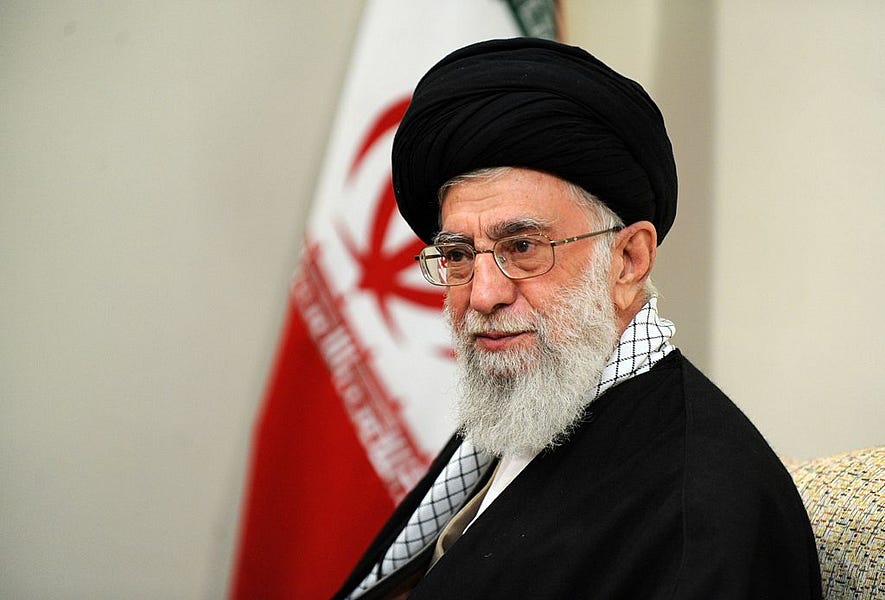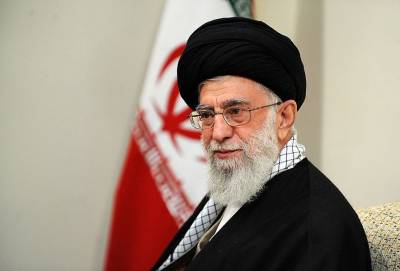An unusual news story emanated from Houston, Texas, late last month. The Islamic Education Center of Houston (IEC) posted a video on YouTube of children singing a Shiite religious song, with pledges of allegiance to Iran’s Supreme Leader Ayatollah Ali Khamenei. A comparison of the background in the video to publicly available images of the IEC show a striking resemblance, leading to the conclusion that the video was likely filmed on-site.
Following the backlash to the video, the IEC made it private on YouTube. Some saw this as an innocent song with a religious message, while others saw it as a political song in support of the Islamic Revolution of Iran and the supreme leader, which signifies Iranian soft-power influences in the United States. Even those skeptical that the song has sinister meaning and see it as a purely religious performance cannot ignore the Iranian influence brooding beneath the surface. The IEC is a Shiite community center which includes a mosque, organizes community programming, and runs a K-12 private school (Al-Hadi School), as well as a Sunday school. To support the local community, it operates a free health clinic, has a COVID-19 financial assistance program, offers scholarships for higher education, promotes interfaith dialogue, and more. No less importantly, the IEC clearly supports a pro-Iranian regime ideology and may be part of a larger network.
The IEC is currently renting its space from the Alavi Foundation, which rents real estate and financially assists Shiite organizations, some with a clear affinity to the Iranian regime. The foundation was the target of a civil action suit by the Manhattan U.S. attorney, who claimed that the foundation provided services for and funneled money to the Iranian government through Bank Melli, which has been sanctioned by the U.S. Treasury Department for its services to the Islamic Revolutionary Guard Corps’ (IRGC) Quds Force. Though some observers have alleged the relationship between the IEC and the foundation is purely tenant-landlord, the facts suggest otherwise. According to the Alavi Foundation’s website, the IEC serves as a book distribution center for the foundation and received a grant to support the service.
Additionally, the IEC is listed as having signed petitions supporting the foundation.
While the Alavi Foundation does support institutions and causes that are not necessarily pro-Iranian regime, the IEC is not one of those entities. It has a history of taking part in pro-Islamic Revolution events and hosting Khomeinist, anti-American speakers.
For example, on June 5, 2020, the IEC took part in an event memorializing Ayatollah Ruhollah Khomeini, the founder of the Islamic Revolution, hosted by the AhlulBayt Islamic Mission, a British organization that has been endorsed by members of the Iranian regime. The event was held in cooperation with “Light of Guidance,” an organization that took part in the 2020 “International Jerusalem Day” conference organized by the Islamic Human Rights Commission (IHRC), a London-based organization with highly questionable ties to Hezbollah, a U.S. and U.K.-designated terrorist organization. The speakers at the event included Marzieh Hashemi, an American-born Press TV journalist who was linked to an Iranian espionage operation, and Usama Abdulghani, a cleric who promotes conspiracy theories, such as the claim that United States and Israel created ISIS, and supports calls by Iran and Hezbollah to destroy Israel and the Jews. The IEC held multiple events with Abdulghani, frequently in honor of the anniversary of the Islamic Revolution. Over the years, it has also hosted multiple events in memory of Khomeini and featured Ayatollah Khamenei in its publications.
Moreover, the IEC has strong links with the Muslim Congress, which was co-founded in 2005 by the leader of the IEC. The Muslim Congress is a Khomeinist organization and has been characterized as such in the Los Angeles Times. Likewise, according to the Al Zahra Foundation of Nottingham, the Pakistani and Iranian-educated Islamic scholar Hojatoleslam Maulana Ghulam Hurr Shabbiri was “directly appointed by the Office of the Supreme Leader as Imam-e-Juma and Resident Aalim of the IEC in Houston up until 2015.” This suggests the Office of Iran’s Supreme Leader, which has since been sanctioned by the United States, may have appointed a senior official at the IEC in Houston. Shabiri has been active in many Shiite communities in the United Kingdom and the United States.
The presence of pro-Iranian regime groups in the United States is a cause for concern, as Iran is known for using education, religion, and culture not only to expand its influence all over the world, but also, at times, to exploit these networks for operational recruitment for terrorism. Consider the case of Al-Mustafa International University, which has branches in more than 50 countries. The U.S. Treasury Department has sanctioned this educational institution as it has enabled the IRGC’s Quds Force to conduct intelligence operations, using the Al-Mustafa student body for recruitment purposes. Although Al-Mustafa has no branches in the United States, IEC is adopting the very Khomeinist ideology that it embodies.
Iranian soft power influence operations have intensified in South America as well. According to a report by an Argentine prosecutor in 2013, it alleged that the Islamic Republic was employing “local clandestine intelligence networks” under the cover of religious and cultural programs to develop a “capability to provide logistic, economic, and operative support to terrorist attacks decided by the Islamic regime.” Mexico has been fertile ground for Tehran—a Univision documentary once revealed that an Iranian operative working with Mexican students sought to carry out cyberattacks in the United States. The AhlulBayt Islamic Mission, which the IEC in Houston collaborated with in 2020, is considered the British arm of the Iran-based Ahlul Bayt World Assembly, which counts the secretary-general of Hezbollah Hassan Nasrallah, himself a U.S.-sanctioned terrorist, as a member of its Supreme Council.
These platforms in the United States provide permissive environments ripe for recruitment by the Iranian regime. By shortening the path to radicalization, this could grow into a domestic terror threat, as we have seen recently that Iran continues to try and carry out attacks on American soil and engages in transnational repression. Just this month, a gunman was arrested outside the home of the prominent Iranian American dissident Masih Alinejad, who had been the victim of an Iranian intelligence kidnapping plot. There are active threats against current and former U.S. officials, including former Secretary of State Mike Pompeo. The U.S. intelligence community has repeatedly warned that “Iran …remains committed to developing networks inside the United States—an objective it has pursued for more than a decade.” In multiple speeches, the Commander of the IRGC’s Quds Force Esmail Ghaani has threatened to attack America from inside its own house as revenge for the death of his predecessor Qassem Soleimani.
Thus, Iranian soft power influences are inherently risky given the nature of Tehran’s regime. Its track record of leveraging these tactics, which on their face appear benign, into something more sinister should prompt scrutiny from policymakers.
Moshe Kwiat is an OSINT and SOCMINT analyst specializing in disinformation and influence operations, and a graduate researcher at Reichman University. He is on Twitter @Mokwi8.
Jason M. Brodsky is the policy director of United Against Nuclear Iran (UANI). His research specialties include Iranian leadership dynamics, the Islamic Revolutionary Guard Corps (IRGC), and Iran’s proxy and partner networks. He is on Twitter @JasonMBrodsky.






Please note that we at The Dispatch hold ourselves, our work, and our commenters to a higher standard than other places on the internet. We welcome comments that foster genuine debate or discussion—including comments critical of us or our work—but responses that include ad hominem attacks on fellow Dispatch members or are intended to stoke fear and anger may be moderated.
With your membership, you only have the ability to comment on The Morning Dispatch articles. Consider upgrading to join the conversation everywhere.